- People
- Gerald Kellman
- David Mendell
- Cassandra Butts
- Bradford Berenson
- Abner Mikva
- Janny Scott
- Will Burns
- Ben Wallace-Wells
- Ryan Lizza
- Mark Halperin
- Pete Rouse
- Related Links
- The Conciliator
"Where is Barack Obama coming from?" (The New Yorker, May 7, 2007) - For a New Political Age, a Self-Made Man
"… he can sometimes seem as much athlete as politician." (The New York Times, Aug. 28, 2008) - Making It
"How Chicago shaped Obama" (The New Yorker, July 21, 2008)
Gerald Kellman Community organizer, Obama's former boss
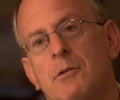 Read the full interview >
Read the full interview >
[What is your first impression of Barack Obama?]
Well, there's the surface impression, and then there's the more substantive impression. The surface impression was that he was personable. For 24 years old, he seemed relatively stable emotionally, fairly confident, neat, and he was personable. That's the superficial sort of impression.
What was important for me was his motivation. I mean, the whole purpose of this interview for me was to ascertain his motivation because we had not had good experiences with people who were as young as he was in organizing. They would burn out very quickly. The work was very frustrating. … The fact that someone had been successful in previous endeavors, including in their academic career, was not necessarily a plus in terms of the organizing, because young people who have been successful would, for the first time in their life, encounter significant failure, and they would often unravel on us.
So I wanted to see whether his motivation made sense to me, and that he'd be able to withstand some of that stuff in the early stages of learning the work. And the way I needed to do that was to get as much of his story as possible. The organizing itself was always based on a narrative, which gave Barack a good jump start with the work, getting to know people's story and building a relationship with them around that story, and then challenging them to move out of that story, to change their life along with other people. …
Based on [his] story, I was convinced that he had a good shot at doing the work. First of all, Barack was, to my mind, an outsider. He'd been American growing up in a foreign country. He had traveled back in high school without his mom to Hawaii. Although he was biracial, he was certainly identified as someone who was black and African American. There were very few people like him in Hawaii. He had moved around a lot. And he just had the experience of being an outsider. …
For the work we were doing, people were poor. People had faced racial discrimination. They're certainly outsiders. So Barack used his own experience of being an outsider -- although he had more opportunities, certainly, than the people we were working with -- to identify with other people.
The other thing about the outsider piece is that he had a tendency, as people who feel that way, to step out of things, to be reflective, not just to get caught up in the action, but to step out and think about things. And he was reflective. So that was the first thing.
The second thing is he was very idealistic. What Barack really wanted, I thought at the time, was to be a civil rights organizer, but he was 10 or 12 years too young for that. That was for those of us who were a little bit older, and this was the closest thing he could find. But he had been inspired by the civil rights movement and by Dr. King, in particular. That sort of inspiration, idealism, was particularly powerful for a young man who was half-African and who was trying to figure out how to put the various pieces of his identity together. So there was that idealism.
And finally -- and this is true of him today -- he was very hungry to learn. He really took the job to learn how to do this kind of grassroots work. And what he did in the interview, which is what I always would look for, is he sort of turned it around on me. In addition to my asking him a bunch of questions, he wouldn't let me get out of there without asking me a bunch of questions. … His questions were really pointed towards, what would he learn? Could we teach him anything? Was he going to be able to learn enough? And how would he survive financially? What were we going to pay him? ...
[In his memoir he wrote about one particular community meeting that he had carefully scripted and rehearsed but that did not go as planned.] Explain what happened that day and what it taught Obama.
I don't know whether it taught him this, or if this is the nature of Barack, but when he met frustration or defeat he's initially either angry or kind of depressed about it, but he's resilient. He steps back from the situation. He regroups and he steps back in. And we learn the most from our defeats, from our failures, not from our successes.
David Mendell Author, Obama: From Promise to Power
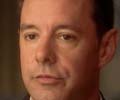 Read the full interview >
Read the full interview >
He's not a man who is short on self-esteem or short on ego. Michelle has always been the one to try to counteract that a little bit, because he can get a little over-inflated at times and that can come across. … He's an extraordinarily confident man.
Where do you think that comes from?
I think that comes from the fact that his mother really built up his ego when he was a child. I think she felt like, here's this African American child, growing up in a white family, whose father has left him. He may suffer from some self-esteem issues. So she built his character up from the very beginning. She told him he was from almost a superior race of people and that he had this extraordinary intellect, that he was someone very special. And he was taught from the time he was a small child that he was a special person, to the point that he seems to still believe that today.
He would tell people, "I'm descended from kings," and stuff when he was a kid.
When he was a kid, yeah. The other kids would look at him and think, "Who does this kid think he is?" But that's what his parents were telling him, and you believe what your parents tell you as a child. It wasn't until he got older that he discovered, much to his chagrin, that his father's family was one of [the] poorer tribes in Kenya, and that some of them lived in mud huts and they didn't have the political power, even in their own country, much less around the globe.
Cassandra Butts Harvard Law, class of '91; Obama adviser
 Read the full interview >
Read the full interview >
The search for identity, we've all been on one. Take me, to the extent that you know it, through what that search for identity was for Barack Obama.
This was actually amusing to those of us who knew him during law school. Barack's identity, his sense of self, was so settled. He didn't strike us in law school as someone who was searching for himself or had searched for himself a few years previously and had come to this realization of who he was. No one is ever fully formed, but Barack was as fully formed as a person could be at that point in his life.
And so when we read Dreams From My Father, we were surprised that he had gone through all of this angst and this search for identity and how tumultuous it had been and how recent it had been, essentially. Because that wasn't the person that we knew, but it clearly informed the person that he had become. And he was fortunate in that he had figured it out early enough in his life that he was able to put that behind him and move forward in ways that others hadn't done and were still trying to figure out. …
What is the self-awareness that he has? … You say he already seems to be fully formed. But did he ever talk to you about moments that mattered or how he got there?
Yeah. We definitely talked about his experiences from going to Kenya and meeting his father's family for the first time, which he did prior to coming to law school, what it was like; the time he spent in Indonesia with his mother and his stepfather. You definitely got those parts of the conversation. …
Barack has had to deal with dueling identities all of his life. He [was] nurtured by a white family and identifying with that family, but at the same time, when he goes out, he's identified as something else. And he has had to make sense of that duality his entire life. And I think that that's one of the reasons why he is not prone to either/ors. He appreciates that it's usually a bit of both. And that's the way he thinks about the issues. And so you could say his life experience has informed his approach to politics and his approach to policy.
Bradford Berenson Harvard Law, class of '91
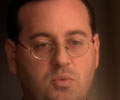
He made an extraordinary decision. He turned his back on what would normally be the standard route for any president of the Harvard Law Review, which is to take very prestigious judicial clerkships, probably including a clerkship at the Supreme Court of the United States. And he returned to Chicago instead to begin political work and community work.
From the perspective of people on the Review in 1991, that was an unfathomable, unheard-of decision. The clerkships only take -- even if you do get a Supreme Court clerkship -- two years. And they're an extraordinary experience, an extraordinary credential, an extraordinary opportunity to serve the country and serve the judiciary. …
Barack was more than capable of getting any clerkship in the country he wanted. … He turned his back on that and did something entirely different. It was clear he had a different plan and a different vision for his own life and saw himself, in some ways, as a breed apart and running separate from the pack, even back then.
Did you ever talk to him about why he made that decision?
… I can't remember the specifics. I have a vague recollection of being aware that he was a few years older than the other editors, saw himself as … having a little less time to spend on detours; that he wanted to go straight after the things he was interested in and that clerking would have been something of a detour. …
His interest in politics, and his political ambitions, were well-known among the editors at the time. He had received a lot of attention when he became president of the Law Review, the first African American. There had been stories in the national news media about him. He'd been involved in community organizing in Chicago before he came to the law school. And so in the annual parody issue of the Law Review that comes out at the end of the year as part of the banquet, there were a lot of cracks and jokes made at his expense about politics and his interest in politics. …
How did he take stuff like that?
Very good naturedly. I never saw Barack lose his cool, get angry, have a fit of temper, raise his voice. Most of the time if he was frustrated or bemused by something, there'd be kind of a wry smile, maybe a knitting of the eyebrows. But he was a very cool character, a very cool customer in all senses of that word. And any ribbing directed at him was taken in stride and with very good humor, very good nature. ...
So when you watch him through this primary campaign … [does he seem different than the guy you knew back then?]
When I see him on the political stage now I very much feel like it's the same guy that I knew and spent those years with on the Harvard Law School campus in Cambridge. He doesn't seem like a new man, a different man, someone who's radically remade himself, a Gatsby figure at all. He was then who he is now. And some of that same cool, some of that same affability, some of that same unflappability, that good faith, that good character, that intellect, they were all apparent then. And I think they all come through now and are part of the secret to his appeal.
Abner Mikva Federal judge 1979-'94; Obama mentor; offered him a clerkship after law school which Obama declined
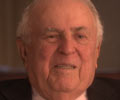
One of the reasons I was sort of surprised that he turned me down was at that time I was what was known as a feeder to the Supreme Court. The justices included Justice [William] Brennan and Justice [Thurgood] Marshall and Justice [John Paul] Stevens and Justice [Harry] Blackmun, all of whom would frequently take my clerks, Justice [Sandra Day] O'Connor. And it was a good likelihood that anybody who clerked for me with his kind of background would have gone upstairs to the Supreme Court. … Those are the best credentials you can have entering the practice of law. You can make an awful lot of money very quickly. You can just about call your own spot and where you want to practice, who you want to practice with.
As he said when he told me why he wasn't going to interview with me, that wasn't the track he wanted to follow.
And what does that say about him?
It says that he had a pretty good idea of who he was and where he wanted to go; that money was not going to drive his ambitions; that he viewed success not in terms of how big a mark he could make in the law but rather on a larger stage. And I read all that into him, and I wasn't wrong, I don't think.
Janny Scott The New York Times
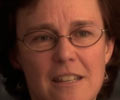
[There's a sort of warts-and-all approach to his autobiography.] What are the warts in this story?
In his version of himself? I'm not really sure. There are times when he characterizes himself as naïve and green and that sort of thing. But he kind of overcomes it.
He also describes himself as having flirted with sort of teenage, self-destructive tendencies: drugs, not paying attention to his schoolwork, not really applying himself, a slightly sarcastic approach with his mother at different times. But it's all heading toward a trajectory of moving beyond that. It's a very compelling kind of American story with echoes of Ben Franklin and overcoming adversity and moving up.
The adversity is certainly not what a lot of people have experienced. I mean, he's certainly dealt with some serious difficulties and complexities in his family life. And he dealt with what he characterizes as his own sort of human moments of erring and straying from the path. But he does get back on the path.
It's not a terribly sort of self-congratulatory, flattering view. It's pretty straight. So to say that he doesn't dwell on his own warts is not to say that he's constantly flattering himself either.
Will Burns Deputy campaign manager, Obama '00; campaign staffer Obama '96
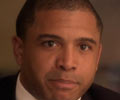 Read the full interview >
Read the full interview >
You knew when you were around Barack, that Barack was going to be something big. He was so different than many of the other elected officials. … His charisma, his thoughtfulness, his ability -- he was just on a different scale. … You knew that he was not going to be the dean of the state Senate. Not to take anything away from a guy who would be the dean of the state Senate, because it's a very difficult role. But that just wasn't who he was.
He used to encourage me not to suffer from a poverty of ambition. But that didn't mean ambition without preparation, without skill, and without learning, and without working hard, and without self-examination. And he did those things.
Ben Wallace-Wells Rolling Stone
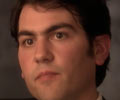
I met him for the first time in 2004, in about September. … It was during his Senate campaign, and he had a debate against Alan Keyes. And we were at a church right in the center of Chicago. And this is just a total Obama crowd. It's all these people who have come out from community organizations from the South Side of Chicago. It's obviously a very liberal city, and so you have a crowd that you should just absolutely kill at. … The reporters who were there are all excited for this Bobby Kennedy moment, you know, this kind of next political hero to deliver this great speech.
And the thing that's striking about Obama then, and I think you continue to see elements of this going forward, is how reticent he is in some of those moments. At the time I wrote that he had a charisma of denial. He'll go before a crowd that he can rile up and he'll sort of take a step back. He'll say things that are designed not to please the crowd. So there's a carefulness about him.
In this particular instance, there were some people in the audience and community activists who were getting all riled up and complaining about the problems of high-rise housing projects. And they were pushing for more federal funds for low-rise projects. And it would have been the easiest thing in the world for Obama to sort of jump on that feeling and emotion, because there were like two or three people in the crowd who said similar things. And he stepped up and he said, "Now, low-rise has problems of its own." …
What's he like personally to be around?
He's not back-slappy. He's very kind of formal. He is a little bit cautious in one-on-one interactions. He jokes with his staff, he makes fun of his staff. Within the context of him and his staff, he's the cool guy, and they're the guys he's tweaking.
But I find him to be sort of a very isolated personality. People have written about his cigarette habit, and that's a very present part of his life. He's always walking off by himself to take cigarette breaks. There's the kind of, "Let me step away from the crowd and think about things," that you get with him. I don't think he's a very naturally public figure. …
Does he strike you, when you're in his presence, as a brainiac?
Yeah, I think that's right. What he strikes you as is a wonk, as somebody who is not necessarily comfortable talking about things that he hasn't thought through, and tries to be very careful in conversation and hedges a little bit. You do get a little bit of a social awkwardness around him. He's not somebody who's necessarily comfortable in crowds. I think a brainiac is basically right.
Ever seen him lose his temper or get testy?
I've seen him get a little testy. But it's not like yelling and screaming. You just get kind of like a little bit of a huff, a minute or two of a huff, and then he walks off. And then he comes back.
The thing that comes through again and again is that privacy; you know, there's a shield that drops.
What do you think it's about?
I think that he's not somebody who is reared in this. He's not somebody who spent a lot of time in public. This is sort of a new role for him. And I think that just making that space for himself to think things through, or to remove himself from kind of the eye of the storm is important. …
He has spent a tremendous amount of time on a kind of search for authenticity in lots of ways, ever since he [was] a kid basically: I'm a black kid in a white family, where do I belong?
Do I belong with the Harvard Law Review? Do I belong with a more radical segment of the student population here? Do I negotiate with conservatives here at law school? Do I argue against them? …
My sense of Obama, as you watch him through each of these different cultures and each of these different periods in his life, is that he's sort of entering cultures in order to examine them and maybe take something from them. But he doesn't feel himself to be embedding himself completely within them. …
Well, that's a lot of his journey to Chicago. You go to Chicago, you're in organizing, but it's not going to ring your bell for very long. Then you go to law school, but you're not going to be --
-- a corporate lawyer, you're going to half-way it. You're going to be a law professor, but you're not going to be completely embedded in this academic community. But you're not going to be a full-time politician either, or a full-time community organizer either.
He's a fringe man. And that's one of the reasons, as I said, he doesn't seem to have a natural comfort in crowds. He feels like the guy you'd expect to be on the edge of the crowd observing. He's got a little bit of ironic distance, you know, "Shoot. Me. Now." Not Joe Biden.
Ryan Lizza The New Yorker
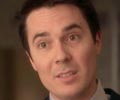 Read the full interview >
Read the full interview >
Obama is not someone who likes to be shown up. He is not someone who likes to have a member of his team out in front of him in the limelight. It's sort of like Bush's relationship with his staff, with someone like Karl Rove. Bush was famously -- he was the principal; he was the guy that should have all the attention. Obama's similar in that way.
So I would say, the one surprising fact about [his picking Sen. Joe] Biden [for vice president] is Biden being a pretty independent guy, someone who's known for speaking his mind quite freely, someone who obviously has more expertise in a lot of the national security issues than Obama does.
The one thing I was surprised about is it does suggest a certain amount of confidence in Obama, that he was comfortable with picking someone who knows a lot more than he does about these issues.
Mark Halperin Time magazine; co-author, The Way to Win
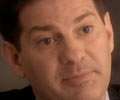 Read the full interview >
Read the full interview >
In the end, Obama is the one still standing. What do we know about him as a result of looking back on the primaries?
Obama doesn't get rattled easily. He doesn't make very many mistakes. And he recognizes that when you have short-term problems, you need to address them, but you can't get consumed by them. You have to be thinking about the longer term. It speaks very well of him as a potential candidate to beat John McCain. And it speaks well of him as a potential president.
And the downside we've discovered about him?
I think Obama's soft treatment by a lot of the press has not tested him as much as he'd be tested in the White House. I think we've also seen that his relationship with voters who don't like him is not as close as it might need to be if he's going to be an effective president to really unify the country. And I think he hasn't been able to reach out as much as some people thought he would to Republicans in what is still a very divided country.
Pete Rouse Chief of staff to Sen. Obama
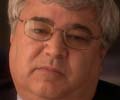 Read the full interview >
Read the full interview >
As a guy who knows him pretty well, what do you think this process has revealed about him?
... I've been very impressed with how steady and calm he is, and even-keeled. When things don't go well, I've never seen him lose his temper or blame someone other than himself for circumstances. He's very focused on: "OK, that didn't go well. Let's figure out why and move forward." And I think that reflects well on how he'll be as president: very calm under pressure, very insightful as to where we go, soliciting opinions, thinking it through. That's the first thing.
The second thing is, throughout this campaign, I think his instincts, both on politics and even on issues, have been the strongest of anybody in the operation. Not always right, not always 100 percent on target, but consistently his instincts have been very good, and I think that bodes well for how he'll be as president.
And the third thing is, ... some of us wondered at the beginning, how hard was he going to work at this? ... But he has worked his tail off. He's been very disciplined and very focused. So I think it's really his instincts, his competence under pressure and his work ethic that have impressed me in this.